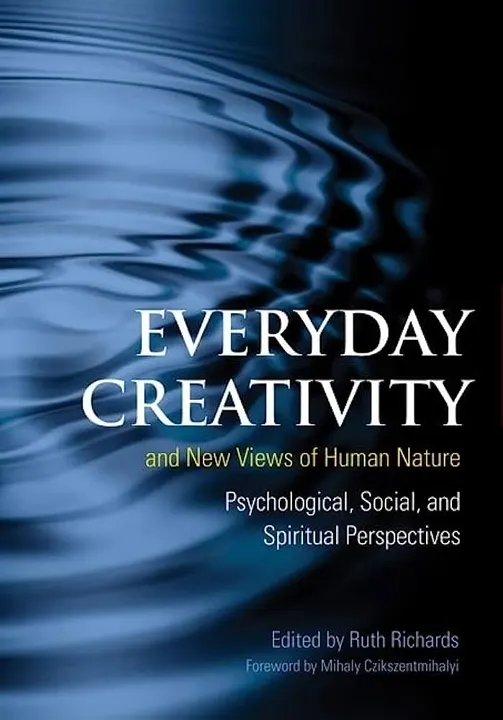95 Opinions?

95 Opinions?
The Power of Perspective
As we go through our daily lives, it's easy to get caught up in our own opinions and beliefs. But have you ever stopped to think about how different people might have completely different perspectives on the same issue? In this section, we'll explore the power of perspective, and how understanding someone else's point of view can lead to more productive conversations and better relationships.
It's important to remember that everyone's experiences are unique, and therefore, their opinions are shaped by those experiences. If we can put ourselves in someone else's shoes, even just for a moment, it can lead to greater empathy and understanding. This can be especially helpful when it comes to difficult conversations or disagreements, as it allows us to see the situation from a different angle and potentially find common ground.
Next time you find yourself clashing with someone, try to see the situation from their perspective. You might be surprised at how much it changes your own opinion, and how much more willing you are to compromise and find a solution that works for everyone involved.
Benefits of Listening to Different Opinions
It can be tempting to surround ourselves with people who share our same beliefs and opinions, but there's a lot of value in exposing ourselves to different viewpoints. In this section, we'll discuss some of the benefits of listening to a variety of opinions, even if they don't necessarily align with our own.
Firstly, listening to different opinions can help us develop critical thinking skills. When we're exposed to new ideas, it forces us to question our own beliefs and consider alternative viewpoints. This can lead to a better understanding of the world around us and help us make more informed decisions.
Additionally, hearing different opinions can help us develop empathy and understanding for others. It's easy to judge someone when we don't understand their perspective, but by listening to their opinions, we can gain insight into their experiences and emotions.
Lastly, being exposed to a variety of opinions can help us grow as individuals. Our beliefs and opinions aren't set in stone, and being open to new ideas can lead to personal growth and self-improvement.
Creating Healthy Debate
Engaging in healthy debate with others can be a great way to explore different opinions and learn from one another. In this section, we'll discuss some tips for creating a respectful and productive debate environment.
First, it's important to establish ground rules for the debate. This might include things like agreeing to disagree, avoiding personal attacks, and focusing on the issue at hand rather than getting sidetracked by unrelated topics.
Second, practice active listening. This means truly paying attention to what the other person is saying, rather than just waiting for your turn to speak. By doing this, you can gain a better understanding of their perspective and respond more thoughtfully.
Third, try to find common ground. While it might seem like you and your debate partner are on opposite sides of an issue, there's often some middle ground that you can both agree on. Focusing on these areas of agreement can help create a more positive and productive debate atmosphere.
Lastly, be open to changing your mind. The goal of a healthy debate isn't necessarily to "win," but rather to learn from one another and potentially adjust your own opinions based on new information or perspectives.
Recognizing and Overcoming Bias
We all have biases that can influence our opinions and beliefs, even if we're not consciously aware of them. In this section, we'll discuss how to recognize and overcome these biases in order to have more open and honest conversations with others.
First, it's important to educate yourself about different types of biases, such as confirmation bias, which is the tendency to seek out information that confirms our pre-existing beliefs, and cognitive dissonance, which is the discomfort we feel when faced with evidence that contradicts our beliefs.
Next, practice self-awareness. Be honest with yourself about your own biases and try to identify when they might be influencing your opinions or decision-making.
When engaging in conversations with others, be open to their opinions and actively work to challenge your own biases. This might involve seeking out information from diverse sources or engaging in debates with people who have different viewpoints.
Lastly, remember that overcoming bias is an ongoing process, and it's important to continually self-reflect and strive for personal growth.
How Social Media Influences Our Opinions
There's no denying that social media has a significant impact on our opinions, often in ways we might not even realize. In this section, we'll discuss some of the ways social media can influence our beliefs, and how we can be more mindful of this impact.
First, social media algorithms often create echo chambers, where we're only exposed to content that aligns with our existing beliefs. This can reinforce our opinions and make us less open to alternative viewpoints.
Additionally, the anonymity of social media can sometimes lead to more extreme opinions and less civil discourse, as people feel less accountable for their words and actions.
To counteract these effects, make an effort to follow accounts and pages that present diverse viewpoints, and engage in respectful conversations in the comments sections. By doing this, you can expose yourself to new ideas and foster a more open-minded approach to social media consumption.
Finally, remember that social media isn't always the best source of information, and it's important to verify facts and research multiple sources before forming an opinion.
Respecting Others' Opinions
It's important to remember that everyone is entitled to their own opinions, even if they differ from our own. In this section, we'll discuss how to show respect for others' opinions and foster more positive and understanding relationships.
First, practice active listening. When someone is sharing their opinion, truly listen to what they're saying, and try to understand their perspective, even if you don't agree with it.
Second, avoid interrupting or talking over someone when they're expressing their opinion. This can come across as dismissive and disrespectful, even if that's not your intention.
Third, remember that it's okay to agree to disagree. You don't have to change someone's mind or convince them to see things your way in order to have a respectful conversation.
Lastly, show appreciation for the other person's willingness to share their opinion, even if it differs from your own. This can help foster a sense of mutual respect and understanding.
Encouraging Diverse Opinions in the Workplace
Having a diverse range of opinions in the workplace can lead to more innovative ideas and better problem-solving. In this section, we'll discuss some strategies for encouraging diverse opinions and fostering a more inclusive work environment.
First, create a culture of open communication, where employees feel comfortable sharing their ideas and opinions without fear of judgment or retribution. This might involve regular team meetings or brainstorming sessions, as well as promoting a supportive and inclusive atmosphere.
Second, actively seek out and value diverse perspectives. This might include hiring employees from different backgrounds or with different skill sets, or simply encouraging employees to share their unique viewpoints during discussions and decision-making processes.
Third, provide training and resources to help employees develop their critical thinking skills and overcome biases. This can help create a more open-minded and innovative workforce.
Lastly, be mindful of groupthink, which is the tendency for groups to conform to a single, dominant opinion. Encourage healthy debate and dissenting opinions, and be open to changing your own mind based on new information or perspectives.
Embracing the Value of 95 Opinions
In conclusion, understanding and embracing the value of diverse opinions can lead to personal growth, better relationships, and more innovative solutions to problems. By actively seeking out different perspectives, practicing empathy and respect, and overcoming our own biases, we can create a more open-minded and inclusive world.
Remember, it's not about agreeing with every opinion you encounter, but rather understanding and appreciating the different perspectives that make up our diverse world. So next time you're faced with an opinion that differs from your own, take a moment to listen, understand, and potentially learn something new.
